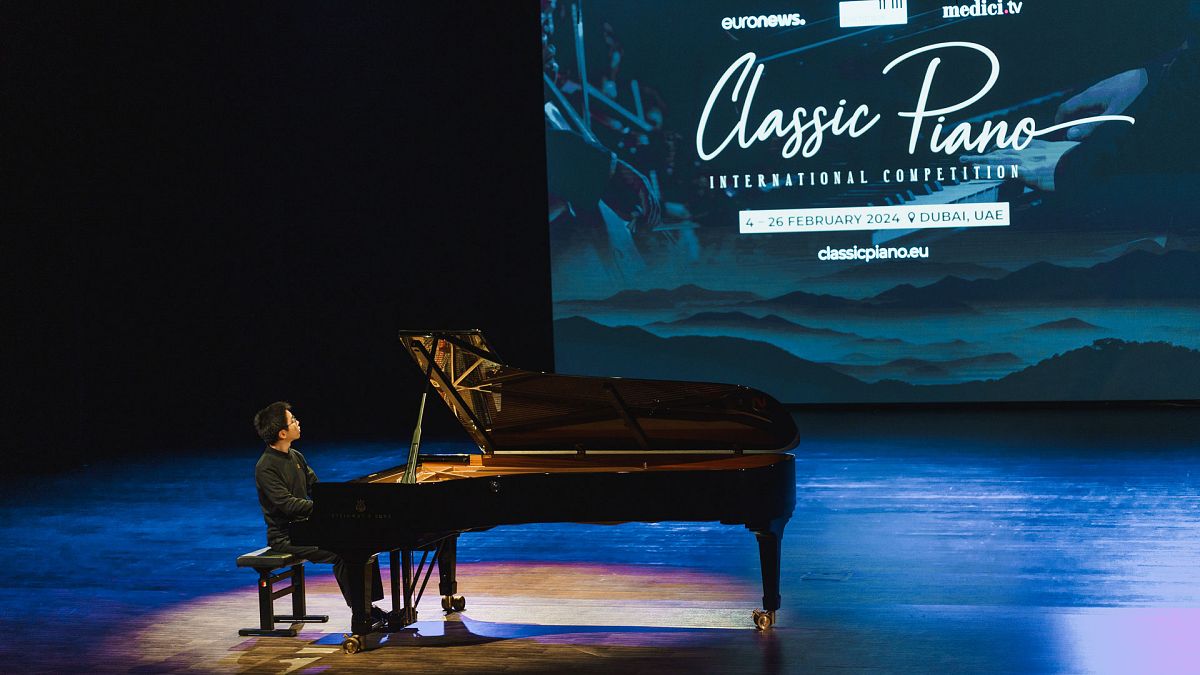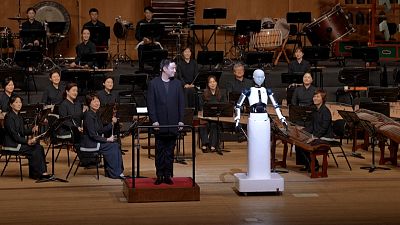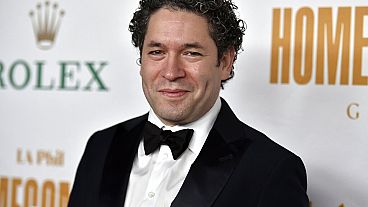The third edition of Dubai’s Classic Piano competition takes place this February. The gruelling three-week competition will put vying pianists through their paces across a range of repertoire both classical and contemporary.
The third edition of the Classic Piano competition returns to Dubai. From 4-26 February in the Zabeel Theatre at the Jumeirah Zabeel Saray hotel in Dubai’s Palm archipelago, competitors will perform from a broad classical piano repertoire in an attempt to win a colossal prize fund.
Here are our top five things you need to know about the 2024 Classic Piano competition.
1) History of the competition
This is the third edition of the Classic Piano competition. The first edition ran between 2017-2018 and had 11 preliminary rounds of competitions held around the world before the grand finale, in Malta, crowned Ukrainian-Austrian pianist Anna Ulaieva as its winner. She beat out over 720 competitors from 70 countries.
For Classic Piano’s second edition in 2021, Russian classical pianist Miroslav Kultyshev came out victorious at the new home of the finale in Dubai.
2) What’s at stake
Classic Piano’s total prize fund is a staggering €250,000. The huge pot of money will be distributed between the top nine finishers of the competition.
The winner of the grand finale will take home €150,000, split between a €100,000 prize and a 10-date tour of concerts that will each pay an honorarium of €5,000. The second-place pianist will take home €50,000, with third place receiving €25,000 and the rest split in smaller denominations between the top nine.
3) Competitors
Those with the opportunity to fight through the gruelling three-week competition for a chance at the huge prize, have already made it through one of the challenging international preliminary competitions.
These 14 rounds were held over two years with competitions in the USA, France, Italy, Belgium, Austria, Kazakhstan, Poland, the UK, Armenia, China, South Korea, Japan, Israel, and Spain.
At each of the rounds, competitors under the age of 35 have duked it out to be in the top five. These top five finalists make up the 70 competitors making their way to Dubai for the grand finale.
4) The repertoire so far
The meat of the competition. Over the three weeks, the finalists in Dubai will prove their worth over four rounds. Each round includes a recital that increases in complexity and will show off the performers’ aptitude for musical skill across the classical genre on piano.
In the first round, over 15-20 minutes, performers played three different kinds of pieces. The first was a selection of a prelude and fugue from Bach’s ‘Well-Tempered Clavier’. Originally composed in the early 18th century as a means of showing off the piano’s ability to cover the entire range of scales, the most famous of these is Bach’s Prelude in C Major, which spans the piano’s key signatures through a pattern of simple arpeggios.
Then, players performed two virtuoso Etudes from a combination of their choice by the composers Chopin, Liszt, Rachmaninoff, Scriabin, and Debussy. These are technical pieces like Chopin’s Étude Op. 10, No. 3 (Tristesse), which show off a player’s dexterity.
Finally, performers played a composition of their choice.
Those who progressed to the second round, performed a 45-50 minute recital including an entire piano sonata from Haydn, Mozart, Beethoven, or Schubert. Each composer has a huge number of sonatas to choose from. All, such as Beethoven’s famous 14th sonata – known as the Moonlight Sonata – are technical displays of the player’s ability to convey an emotional journey through just the piano.
The second part of this round was then a performance of compositions from Chopin, Liszt, Brahms, Schumann, Mendelssohn, Franck, or Mussorgsky. These later piano composers brought new levels of dynamics and physical aptitude to their performances, such as Hungarian pianist Liszt’s eccentric maximalist stylings.
Again, this round included a composition of the player’s choice, provided it was written after 1900.
5) What the competitors now face
The third round heats things up even more as competitors will perform alongside an orchestra. Here they will perform composer-in-residence Alexey Shor’s piece ‘From My Bookshelf’.
The romantic piece is nearly 45 minutes long and will showcase a player’s ability to work alongside an entire orchestra as they traverse through Shor’s narrative work based on famous literary characters such as Cinderella, D'Artagnan, and Romeo & Juliet.
If that wasn’t enough, the competitors will continue their performance alongside the Orchestra to play Mozart’s Piano Concerto No. 20 in D minor, a half-hour-long piece that heavily features a soloist's classical mastery.
Competitors who make it through to the final round of Dubai’s grand finale will meet their greatest challenge. They must perform a piano concerto from a list of greats including Beethoven, Chopin, Prokofiev, Rachmaninoff, Schumann, Tchaikovsky, Brahms and Liszt.
If they take on, for example, Rachmaninoff’s Piano Concerto No. 2, they will have to contend with a piano piece that is staggering in its intensity and a display of the performer’s technical capability as well as their own emotional style.




